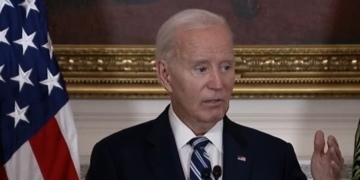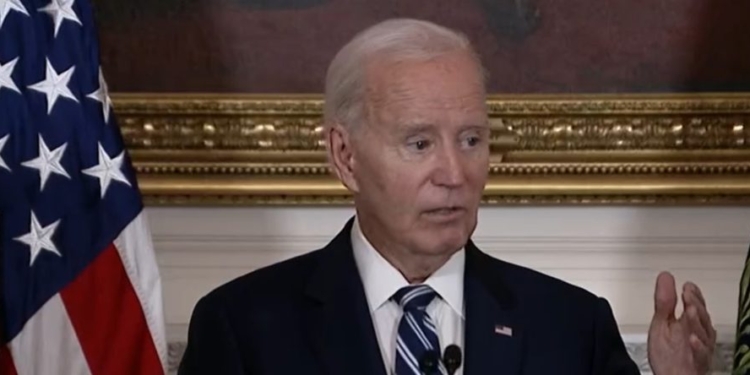As President-elect Donald Trump prepares to return to the Oval Office next week, President Joe Biden is about to hand him a “precarious” economic situation, according to some economists.
While the Biden-Harris White House has repeatedly claimed that the U.S. economy fared well during Biden’s presidency, the massive inflation and rampant government spending over the last four years paints a different picture, experts told the Daily Caller News Foundation. More specifically, Biden is leaving office with a record-breaking $711 billion federal deficit for the first quarter of the 2025 fiscal year and a national debt that reached $36.17 trillion as of Wednesday.
“While the U.S. economy fared far better in 2024 than anticipated, it is in a more precarious state than the outgoing Biden administration is characterizing it,” Peter Earle, a senior economist at the American Institute for Economic Research, told the DCNF. “The type and degree of tariffs the incoming Trump administration puts in place will, to a large extent, dictate how economic growth unfolds.”
The economy was the top issue for voters ahead of the 2024 presidential election. While on the campaign trail, Trump emphasized the need to improve the U.S. economy and promoted economic policies aimed at benefiting average Americans. The president-elect has also leaned into tariffs, vowing to impose sweeping fees on products from foreign countries such as China, Canada and Mexico, and claiming that the U.S. was “the richest, relatively,” under the late President William McKinley, who he dubbed the “tariff king.”
“Federal finances have been turned into an absolute train wreck by the Biden administration,” EJ Antoni, a research fellow at the Heritage Foundation, told the DCNF. “Treasury yields are spiking on a debt of more than $36 trillion. The labor market is anemic, dependent on government jobs, foreign labor, and part-time gigs, as opposed to Americans working good-paying, full-time jobs in the productive private sector. Inflation is still out of control, at an annualized 4.8% rate in December. At that pace, prices will double in less than 15 years.”
The U.S. labor market has largely been bolstered by government employees and foreign-born workers — two groups that saw substantial job growth over the past four years. Some experts previously told the DCNF that increased competition among job-seekers due to record immigration during Biden’s presidency has partly contributed to Americans having difficulty finding jobs in recent years.
“The private economy is slowing, hence why tax receipts are down, but spending is up, creating the worst start to a fiscal year ever in terms of the deficit,” Antoni added.
The domestic economy has also been marred by stagnant inflation since Biden took office in January 2021. While inflation has eased since it peaked at roughly 9.1% in June 2022, rates remain well above the Federal Reserve’s target. The consumer price index, a broad measure of the prices of everyday goods, rose 2.9% in December, the Bureau of Labor Statistics reported.
Biden has overseen considerable government spending since he took office, including the $1.9 trillion American Rescue Plan and dozens of costly executive actions, such as the $183.6 spent in student debt relief, all of which have contributed to the record-breaking national deficit. Antoni wrote in a post on X that the Biden administration is “handing” the president-elect an economic “a ticking time bomb.”
“The deficits created under the Biden-Harris administration are irrefutable evidence of a widening gap between government revenue and expenditures,” Earle told the DCNF. “Even after collecting record taxes, the federal government spent like a sailor on leave after a year at sea.”
The White House did not immediately respond to a request for comment from the DCNF.
All content created by the Daily Caller News Foundation, an independent and nonpartisan newswire service, is available without charge to any legitimate news publisher that can provide a large audience. All republished articles must include our logo, our reporter’s byline and their DCNF affiliation. For any questions about our guidelines or partnering with us, please contact [email protected].



























 Continue with Google
Continue with Google